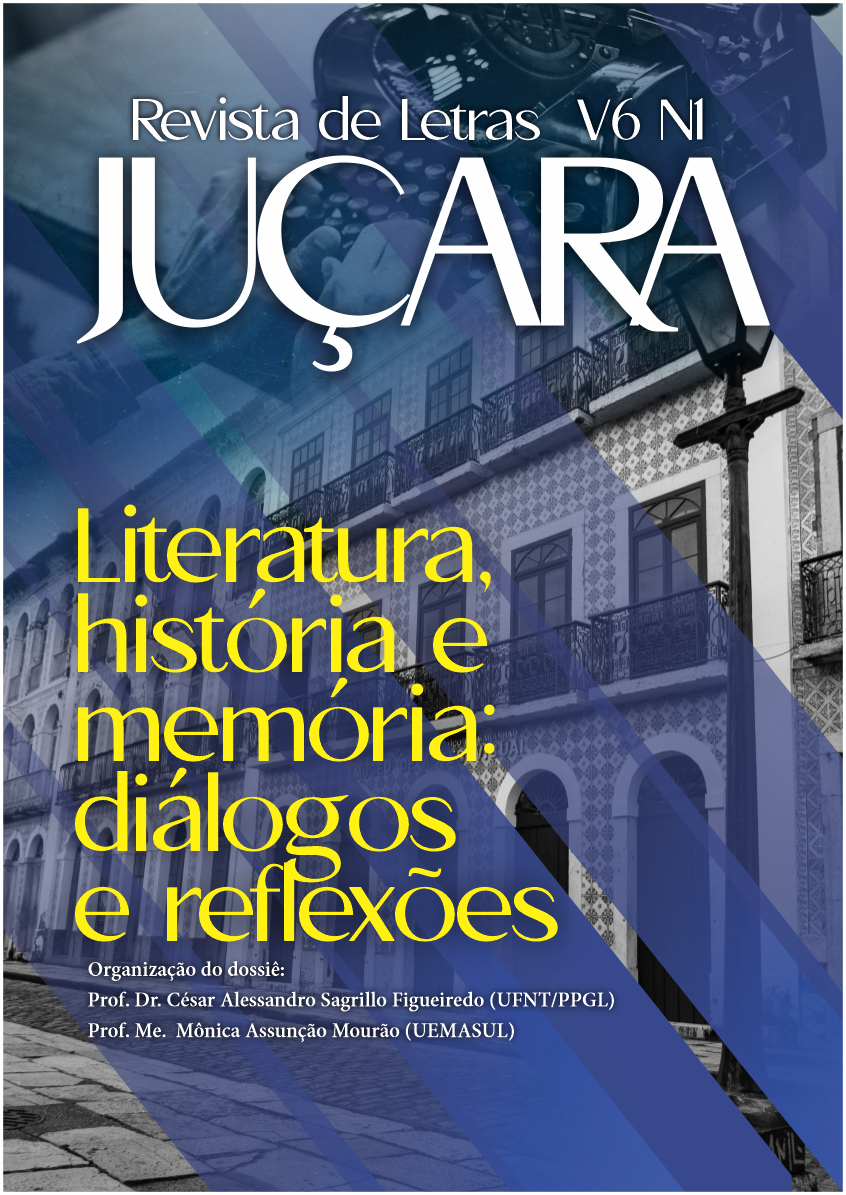RASTROS, MEMÓRIA E DRAMA HUMANO NO ROMANCE BANGUÊ
DOI:
https://doi.org/10.18817/rlj.v6i1.2825Resumo
Este artigo tem como objetivo apresentar uma leitura do romance Banguê (1934), de José Lins do Rego, a partir da teoria do rastro, de Walter Benjamin (2006), (SEDLMAYER, GINZBURG, 2012). Banguê apresenta como tema central o contexto dos engenhos de cana de açúcar do nordeste brasileiro e tem como narrador protagonista Carlos de Melo, neto do senhor de engenho coronel José Paulino. Será a partir das retomadas de Carlos (os rastros) que o leitor compreenderá o que aconteceu em seu passado. A partir das transformações vividas por Carlos e pelo engenho Santa Rosa, tentaremos mapear os rastros que a narrativa apresenta para significar os restos. É possível perceber que a trajetória vivida por Carlos de Melo revela um encontro entre passado e presente, um passado de abundância e apogeu do Santa Rosa; um presente de decadência do engenho e de solidão de Carlos de Melo. Desse modo, o rastro consiste em um procedimento interpretativo do passado que pressupõe pensar a narrativa a partir do ponto de vista histórico, situando a coisa vivida em tempos de outrora. Segundo Ginzburg (2012), romances com Banguê expõem mundos conflituosos sem conciliação em que a estranheza se acentua. Em meio a tantos conflitos vivenciados pelas personagens, podemos tentar compreender o passado histórico, econômico e social do país.
Downloads
Publicado
Como Citar
Edição
Seção
Licença
Copyright (c) 2022 Maria Aparecida de Almeida Rego, Derivaldo dos Santos

Este trabalho está licenciado sob uma licença Creative Commons Attribution 4.0 International License.
A submissão de originais para a Revista de Letras Juçara implica na transferência, pelos autores, dos direitos de publicação. Os direitos autorais para os artigos publicados nesta revista são do autor, com direitos da revista sobre a primeira publicação. Os autores somente poderão utilizar os mesmos resultados em outras publicações indicando claramente a Revista de Letras Juçara como o meio da publicação original.


